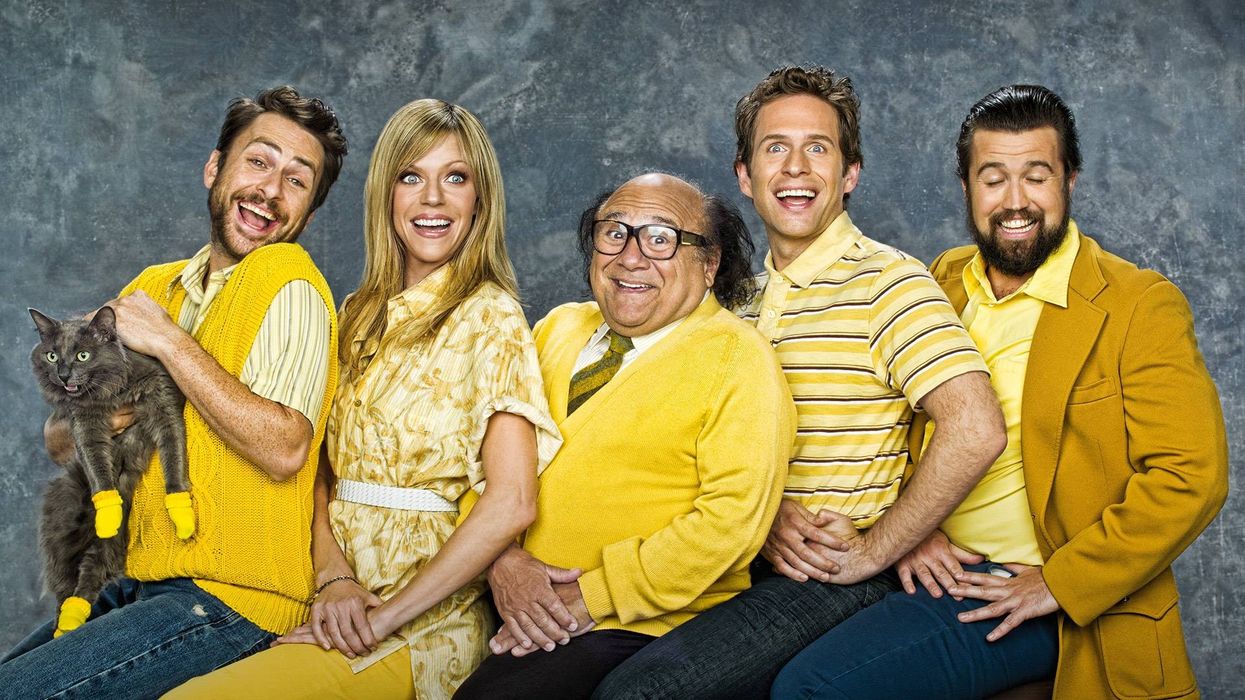Watch: How is 'It's Always Sunny' Still Funny?
After 12 seasons, the sitcom remains one of the funniest shows on TV. Here's why.

In two more seasons, FX's It's Always Sunny in Philadelphia will officially tie with Ozzy and Harriet for the longest running live-action comedy sitcom in television history. Unlike most sitcoms that have grown tired after long runs, the Sunny crew continue to push boundaries and create edgy TV. How are they able to do it?
It all comes down to character. For writers, sitcom television calls for one-dimensional stock characters. But Charlie Day, Glenn Howerton, Rob McElhenney have been writing their own characters for so long now that they basically are their characters. They've incorporated their most base psychological instincts, which, as Film Radar's Daniel Netzel points out in a new video essay, can be attributed to their parents and upbringing.
With those solid characters (in contrast to archetypes), the cast is free to turn a myriad of sitcom tropes on their head. As Vince Gilligan once said, “Television is historically good at keeping its characters in a self-imposed stasis so that the show can go on for years or even decades.” But this season, Sunny has been able to take on everything from North Korea to gun rights to the great recession. That's because the characters are so real, they fit perfectly into the realm of reality.













